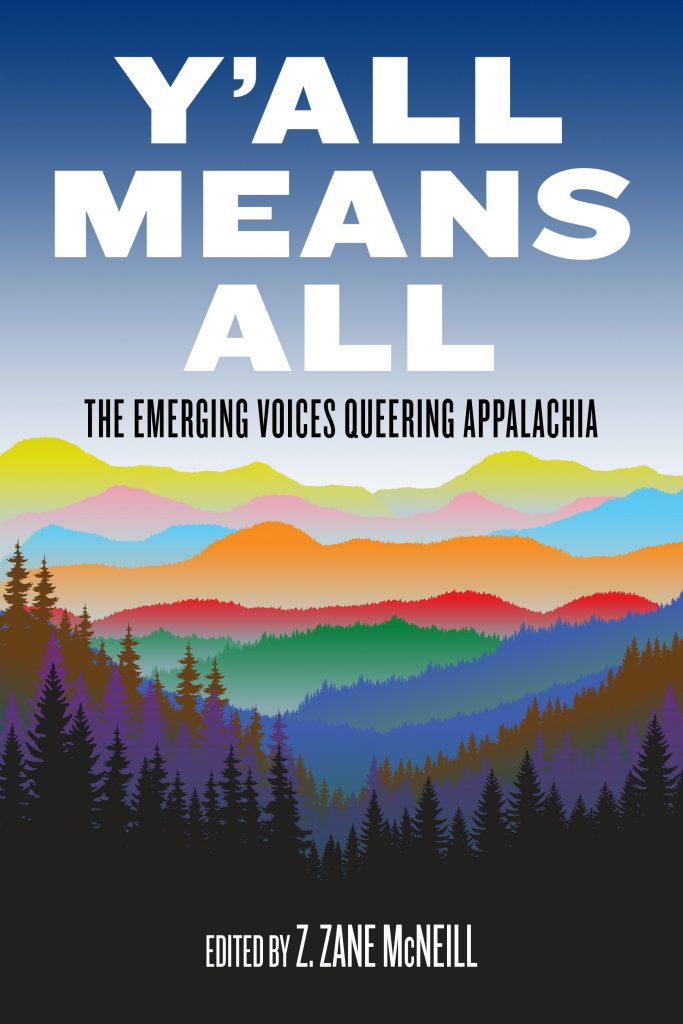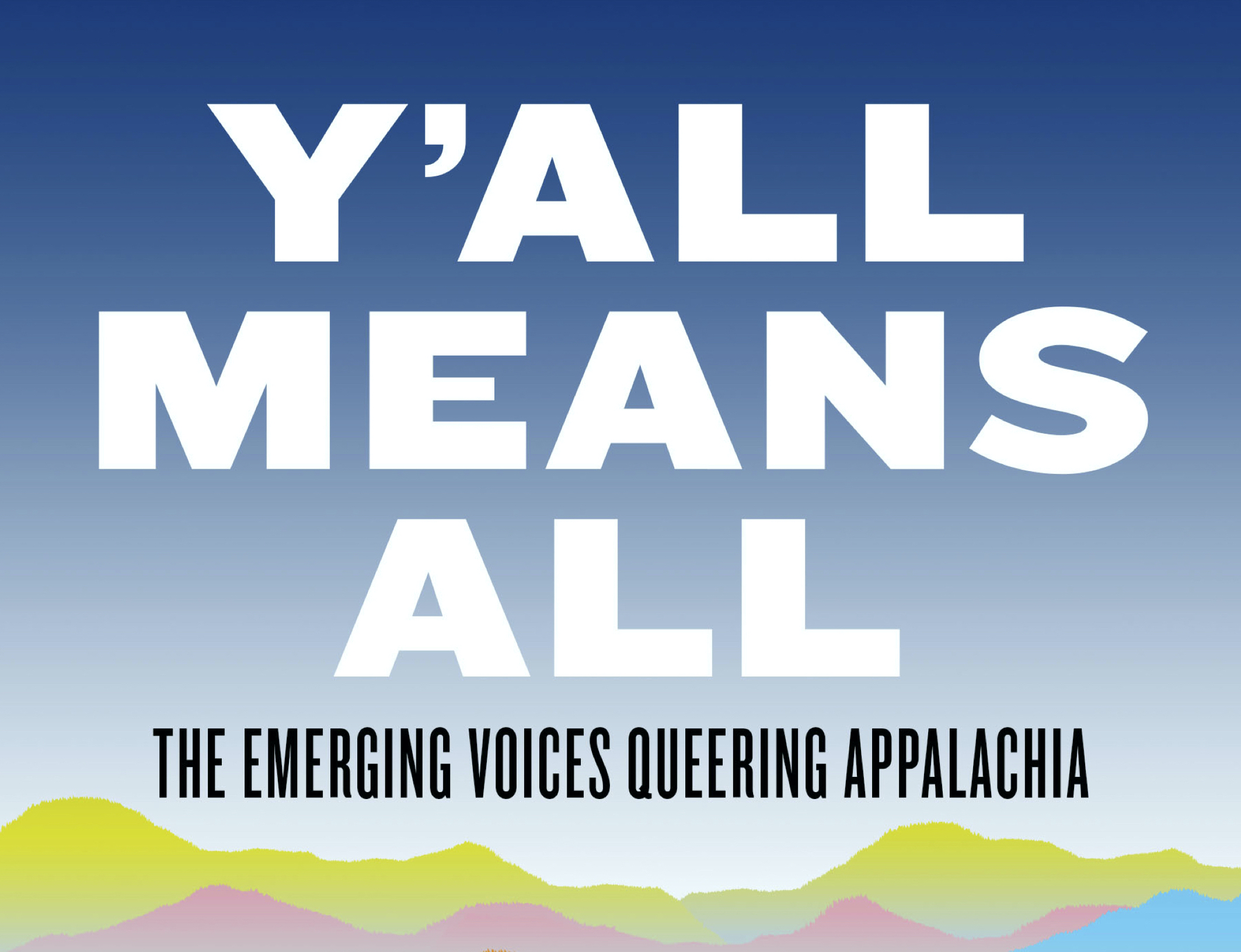By Jessica Cory
Journal of Appalachian Studies
Many of the contributors to Z. Zane McNeill’s Y’all Means All are also found in this special issue, and for good reason. Their scholarship in both venues provides a much-needed critical eye toward Appalachian Studies and Appalachia more broadly, especially in considering how the construct of Appalachia functions as a queer space.
McNeill incorporates a significant amount of history on Appalachian representation in the Introduction, citing well-known foundational works by Harry Caudill and Dwight Billings as well as more recent scholarship by Brian Gilley, Mary Gray, Colin Johnson, Elizabeth Catte, Hillery Glasby, Sherry Gradin, Rachael Ryerson, Adam Denney, and Rebecca Scott in order to explain how Appalachia is often othered and how such othering connects to queerness. Importantly, though, this collection does not center solely academic, scholarly voices. Many contributors to the collection are activists, artists, and non-academics whose lived experiences at the intersections of Appalachia and queerness reflect important truths about the region. Such praxis is wildly refreshing, as first-person narratives are sometimes dismissed as simply “anecdotal evidence,” especially when it flies in the face of commonly held beliefs or understandings about the region.
In conveying these truths, the importance of self-definition both as queer and Appalachian is highlighted throughout the collection, with contributors exploring how they are Appa-lay-shun, Appa-latch-un, queer, “quare,” and many other intersectional identificatory terms. Such self-identification in itself is queer, as self-identification questions the boundaries and categories put in place by the dominant force of white supremacist ciheteropatriarchy. Thus, through defining themselves on and in their own terms, the contributors to Y’all Means All are exemplifying a queer Appalachian praxis.
Unlike many collections centered on Appalachia (though more works have come out recently, such as those by William H. Turner and Karida L. Brown, both published in 2021), Y’all Means All includes fertile discussions of race in the region in addition to (and in intersection with) queerness and Appalachian identity. Several essays, such as “Lessons for the Long Term” by Rachel Casiano Hernandez, E.K. Hoffman’s “Different Creatures, and M. ama’s “Rambles and Reflections of a Black Appalachian,” examine the ways in which white supremacy functions within the region and how queerness reframes and reacts to it. As these (and other essays throughout the collection) explore, Appalachia, despite its claims of internal colonization, is not immune from the white supremacist cisheteropatriarchy that dominates U.S. society. This connection, then, allows for solidarity efforts, even among those who live beyond the arbitrary Appalachian Regional Commission (ARC) boundaries.
Many of the essays also invoke class solidarity and speak out against the problems that arise from capitalism and the greed and exploitation that are its foundation. Several contributors discuss being poor in their essays, and how economic instability has shaped their outlooks, art, and activism. Moreover, the connections between Appalachians literally being defined by poverty level (since which counties were included in the boundaries was decided in large part by each county’s level of poverty) and how such federal choices aided problematic representations of the region, particularly by the media, is also discussed. While it may seem that Appalachian contributors growing up poor embody stereotypes of the region, this collection reframes those experiences as just one more factor in contributing to the complicated messiness that is identity.
While many of the collection’s essays focus on present struggles and circumstances, queer Appalachian histories and the importance of creating a queer Appalachian archive are not overlooked. In particular, the essays of Samantha Allen and Marc Aaron Guest offer up the importance of locating oneself as part of a legacy of queer ancestors and how being able to do so can help support queer folx and ground their identities. As Travis A. Rountree mentions in this special issue, knowing that queer people exist in the region, and have existed, often for generations, is especially important for younger community members, allowing them to become part of a community that’s long-established and looking to welcome them with open arms (Cory ).
As a whole, Y’all Means All joins other recent texts (many of which are cited in its Introduction, so I won’t cite them here) in pushing back against hegemonic portrayals of the region, questioning and dismantling white supremacy, capitalism, misogyny, environmental degradation, and the ways that these systems intersect to disempower, in some form or another, all Appalachians. This book is paramount for understanding the region and its legacy of resilience and resistance through the lived experiences of its contributors and is definitely a must-read for anyone working at the intersections of Appalachian Studies and cultural or queer theory.
References
Brown, Karida L. Gone Home: Race and Roots Through Appalachia. U of NC Press, 2021.
Cory, Jessica. “Taking PRIDE in One’s Community: How Local Rural Pride Events Nurture Queer Futurity, An Interview with Travis Rountree,” Journal of Appalachian Studies, vol. 28, no. 1, , 2022.
Turner, William H. The Harlan Renaissance: Stories of Black Life in Appalachian Coal Towns. WVU Press, 2021.
Jessica Cory is an Instructor in the English Studies Department at Western Carolina University and an English PhD student at the University of North Carolina at Greensboro.







